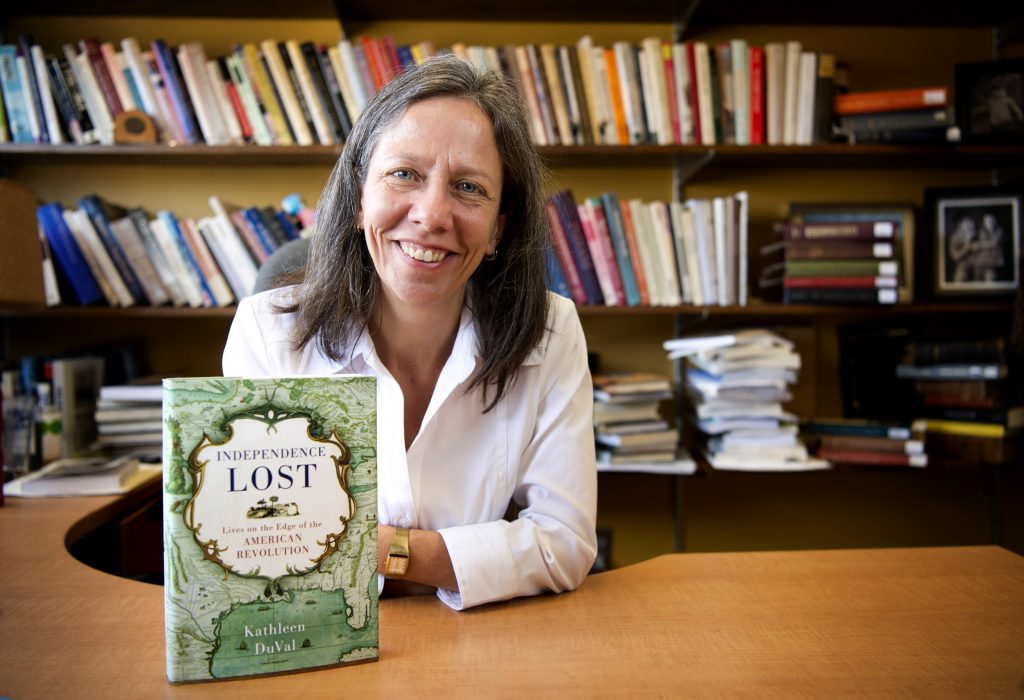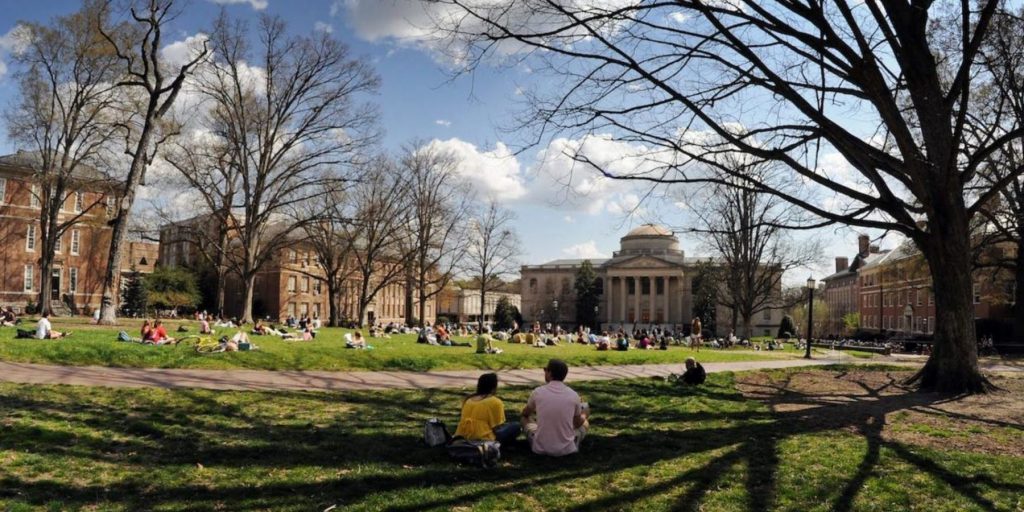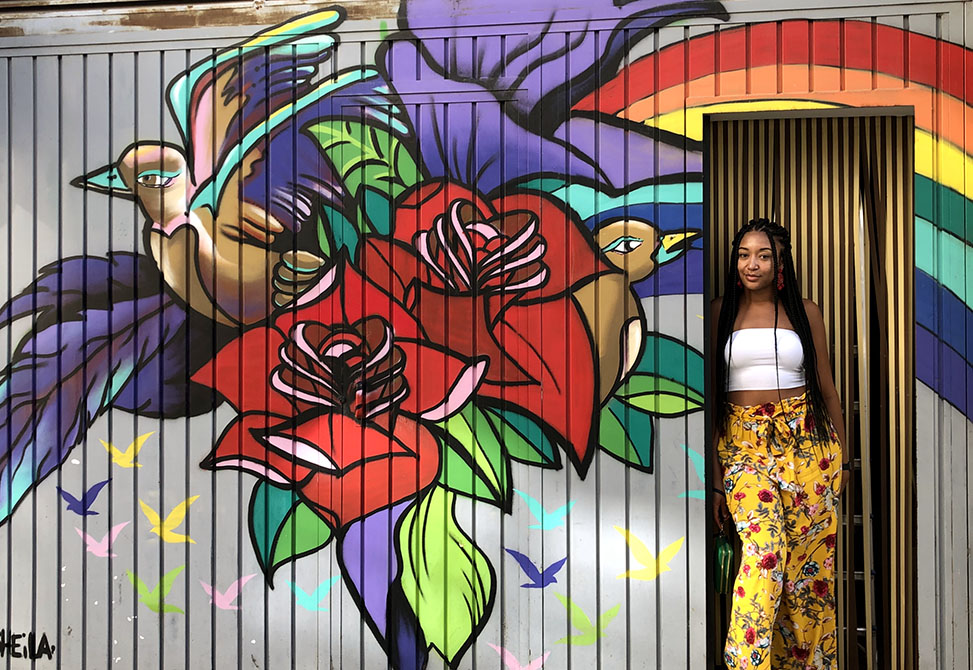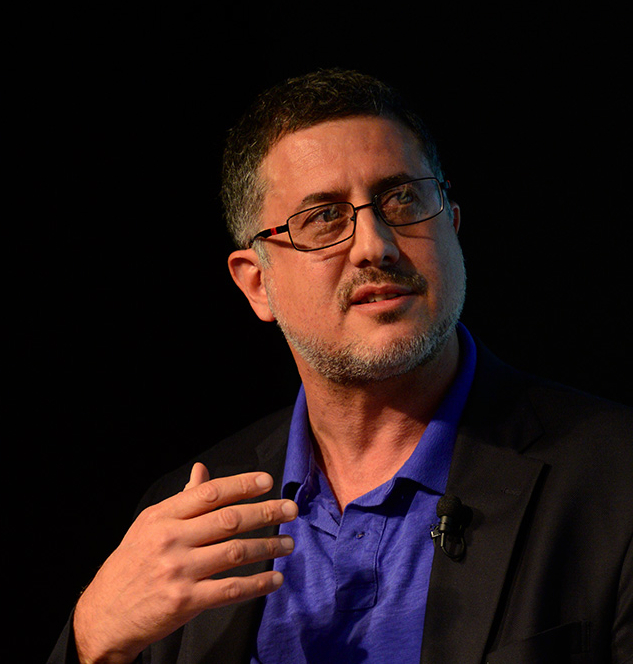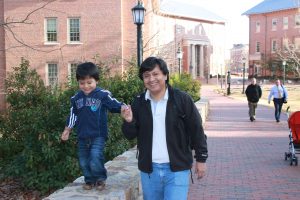
It’s a long way geographically from the small town of Coca, Ecuador, located in the Amazon rainforest, to Chapel Hill.
But it’s a long journey symbolically too — one that Fredy Grefa, a current master’s student in UNC’s city and regional planning department, knows all too well.
Grefa grew up in Coca and is a member of the indigenous Quechua (Kichwa) culture. When oil companies began moving into the region in the 1970s, development happened very fast.
“There were a lot of issues related to land rights, environmental issues and societal impacts,” Grefa said. “Indigenous people were losing their land and being assimilated rapidly by Western society.”
Grefa knew he wanted to help his people, to figure out a way to encourage oil companies to give them a voice in decision-making.
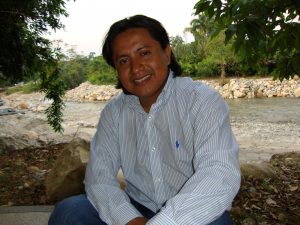
His dad told him that in order to have opportunities in life that he needed to get an education.
Grefa said he didn’t even know how to turn on a computer until he attended the Universidad San Francisco de Quito (USFQ), a private university in Ecuador, on scholarship. (USFQ is an international partner with UNC in the Galapagos Initiative, a broad, interdisciplinary program of education, outreach and research about the Galapagos Islands. The chancellor of USFQ, Santiago Gangotena, is a UNC alumnus.)
Grefa received an undergraduate degree from USFQ in geology. But he decided he wanted to expand his knowledge further by pursuing graduate studies in the United States. He didn’t speak a lot of English. But Grefa has always believed that opportunities are out there — you just have to find them.
He wrote 100 emails to different universities in the United States, and Yale University responded and offered him a full scholarship for an intensive summer English program. That opened more doors, and Grefa applied and was admitted to the University of Illinois at Urbana-Champaign, where he focused his master’s studies on Latin America and on environmental management.
“My research thesis focused on an approach, about how indigenous knowledge can also be used as a tool to support natural resource management in the Ecuadorian Amazon,” he said. “Indigenous people know how to manage resources without destroying the ecosystem. But that kind of knowledge is disappearing.”
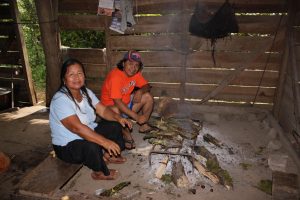
The completion of his graduate studies took him back home to Ecuador, where he worked for indigenous grassroots organizations, an oil company and the Ecuadorian government. He served as the undersecretary of planning, where he was in charge of development in three big provinces. His team managed everything from building roads and high schools to airports and hydroelectric sites. That piqued his interest in wanting to learn more about the issues surrounding planning in indigenous territories.
And that eventually led Grefa to Chapel Hill, to the city and regional planning department. He plans to finish his second master’s degree in spring 2014, and he is also hoping to continue his education by pursuing a Ph.D. Eventually, he will return home to his country, perhaps to work at a new university they are creating in the region where he grew up.
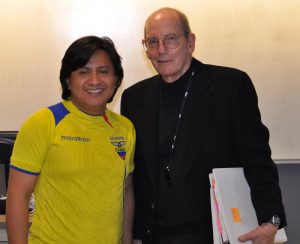
When Grefa joined the program in 2012, Professor Daniel Rodriguez was assigned to be his adviser.
Rodriguez said Grefa has been a tremendous resource for the department with a “laser-like vision in terms of what he wants to do for the indigenous people of the Amazon.”
“He is really emblematic of what we would want Carolina to be for many people,” Rodriguez said. “Fredy has overcome a lot of obstacles and odds to get here. He’s been a wonderful addition to our program.”
[By Kim Weaver Spurr ’88]

